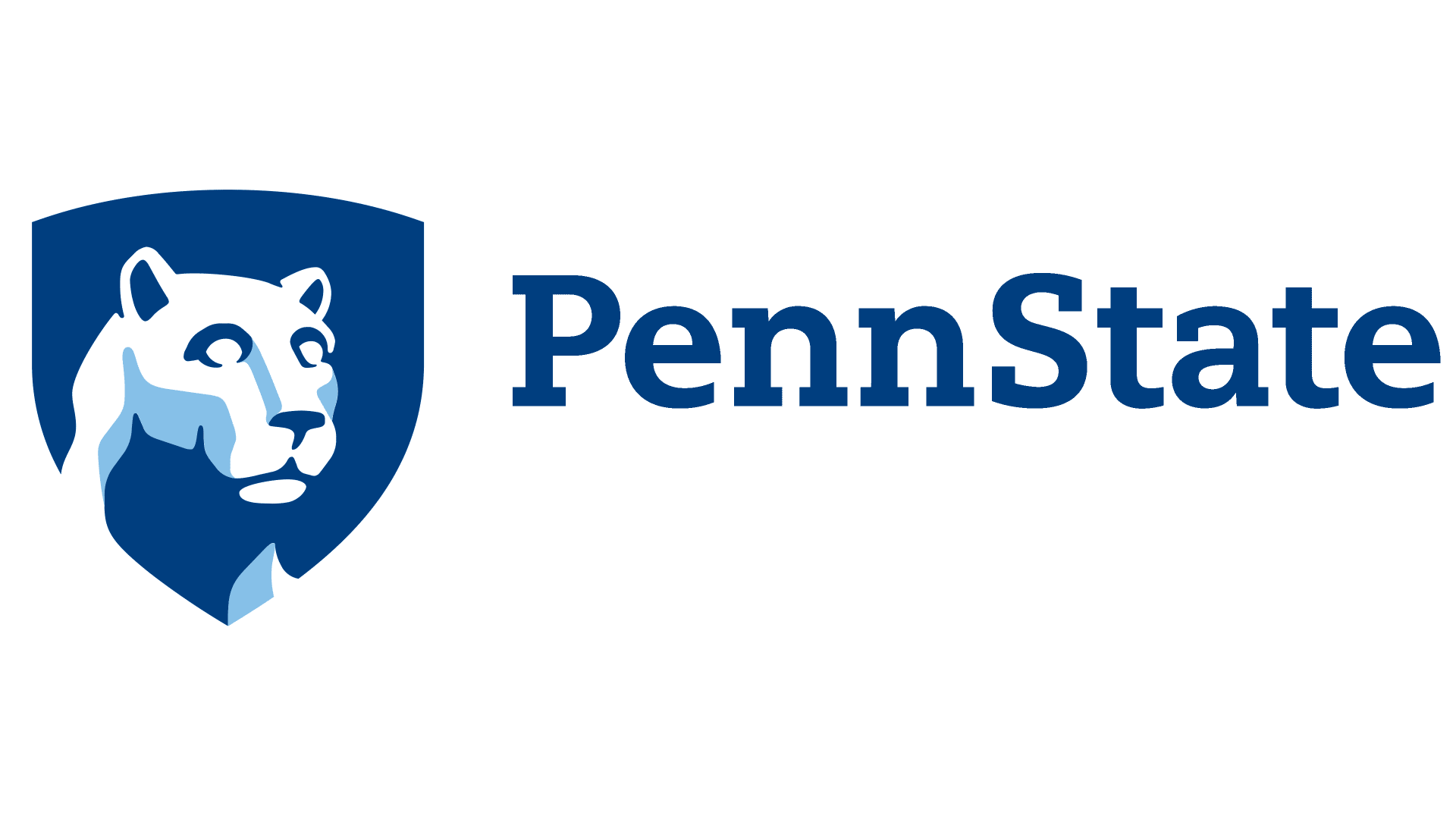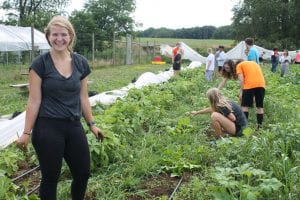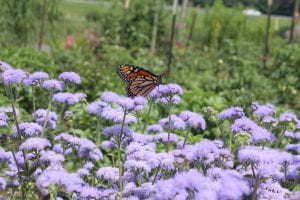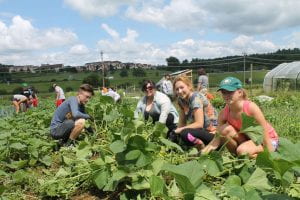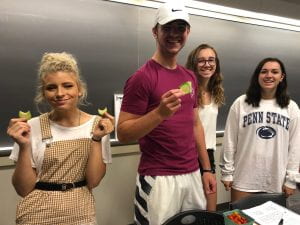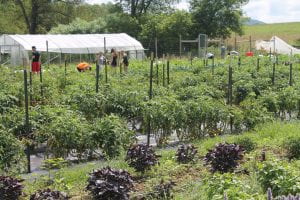Task: Create a feasible, cost-effective tour for Student Farm workers that presents carefully researched information about sustainable farming, food waste, and the role that the farm plays in the Penn State ecosystem.
With a little over two weeks, a $75 budget, and the help of their fellow classmates, Miriam Gonzales’s English 15 class set out to create six new tours for the Penn State Student Farm on the following topics:
- Carbon Emissions: Which food group is the worst offender?
- Food Waste: Where does it go?
- Raw versus Processed Foods
- Imported versus Local Foods
- Organic versus Conventional Foods
- Personal Choice versus Systemic Change
Potential Impact for this Commissioned Assignment
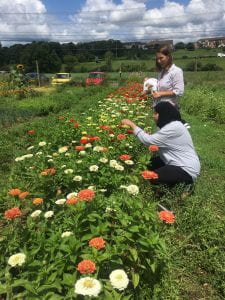 At the beginning of summer 2019, Leslie Pillen, Associate Director of Farm & Food Systems at Penn State, extended an opportunity to PWI instructors: ask students to research and develop modules about the carbon footprint of different foods. This new focus for the Student Farm and the Sustainability Institute matched nicely with Gonzales’s first-year writing class, a summer LEAP course–paired with Geology 30–that focused on the intersections between the environment and society.
At the beginning of summer 2019, Leslie Pillen, Associate Director of Farm & Food Systems at Penn State, extended an opportunity to PWI instructors: ask students to research and develop modules about the carbon footprint of different foods. This new focus for the Student Farm and the Sustainability Institute matched nicely with Gonzales’s first-year writing class, a summer LEAP course–paired with Geology 30–that focused on the intersections between the environment and society.
While the Student Farm had paired with university classes in the past, those partnerships were often rooted in the sciences. Yet Gonzales knew that students in her writing class would have something special to offer: the ability to craft rhetorically convincing presentations that would bring Student Farm visitors to think critically about their interactions with the environment. Pillen reports that students’ work on this commissioned assignment will “provide the program with a useful tool that can be used for tours on the farm as well as taken into classrooms across campus.”
English 15 on the Farm
When students began researching their tour topics, what they discovered was striking. Included below are a few of the staggering facts included in their tour presentations:
- 40% of food in the U.S. is wasted by consumers.
- The “Food Waste: Where Does It Go?” group offered this example: consider how you cut the top and bottom off of your cucumber and throw those pieces into landfills.
- 1 kilo of lamb meat = the car emissions from a vehicle that has driven 91 miles
- Reported by the “Carbon Emissions: Which Food Group is the Worst Offender?” group.
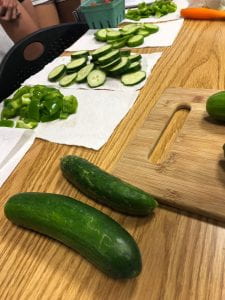 Students realized, however, that statistics could not stand alone in their tours. They would need visuals. The figure on the right shows how the “Food Waste” group convicted their audience about common eating habits and assumptions. They presented a “rotten-looking” cucumber and a “nice-looking” cucumber and asked for a show of hands: who would throw this cucumber away and eat the nice looking one instead? Nearly everyone raised their hands. This habit contributes to that 40% of food waste. They further explained: that cucumber, though mottled, is perfectly edible.
Students realized, however, that statistics could not stand alone in their tours. They would need visuals. The figure on the right shows how the “Food Waste” group convicted their audience about common eating habits and assumptions. They presented a “rotten-looking” cucumber and a “nice-looking” cucumber and asked for a show of hands: who would throw this cucumber away and eat the nice looking one instead? Nearly everyone raised their hands. This habit contributes to that 40% of food waste. They further explained: that cucumber, though mottled, is perfectly edible.
Other groups relied on taste. The “Organic versus Conventional” group prepared a taste test for Student Farm visitors. The previous figure shows two types of bell peppers and cucumbers that were provided for everyone to taste. One type was organic. The other type was conventional. “Can you taste the difference?,” they asked. Nearly everyone in the room chose correctly: the organic vegetables were crisper and had much more flavor.
Overall, then, Gonzales’s English 15 students have prepared a selection of rhetorically convincing tours for the Penn State Student Farm, but this partnership was not only beneficial to the Farm. Gonzales’s students reported that this assignment felt more important than other writing assignments they had completed at Penn State. Some students mentioned that working with a team taught them important “life skills.” When pressed on what skills they were particularly referencing, students reported that group work usually comes much later in the university’s core curriculum. This opportunity to evaluate their individual “strengths and weaknesses” in their first semester had already proved to be a valuable experience.
Still other students thought that the task allowed them to tackle “bigger, more important topics” that would “reach actual people.” But perhaps one student put it best upon remarking that “other papers don’t seem to affect anyone else, but this [commissioned assignment] has actual impact.” What mattered most for students of this commissioned assignment, then, was bringing others to think more deeply about the marks we all leave on the soil beneath our feet.
To read more about PWI’s ongoing partnership with the Sustainability Institute, click here.
